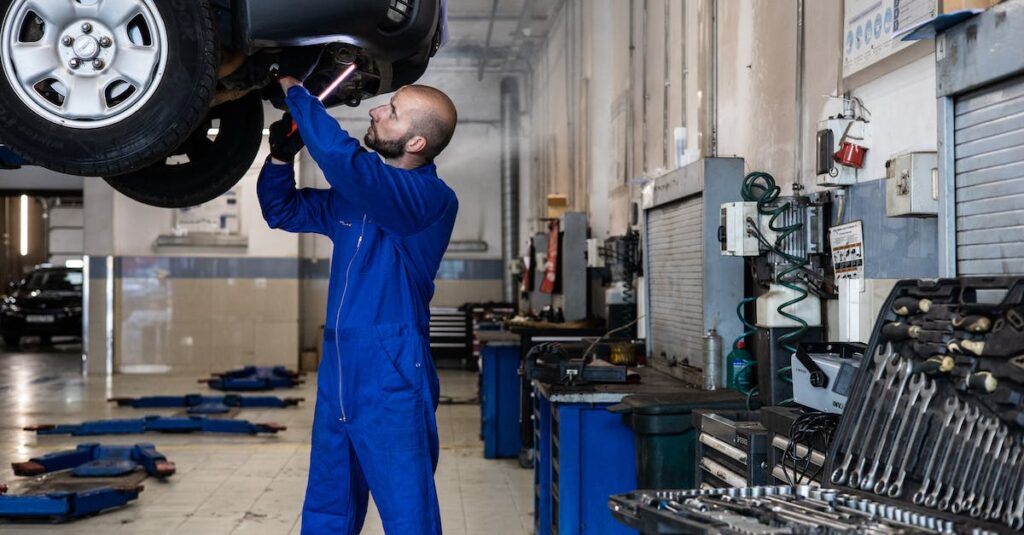Causes of Engine Misfires
Ignition System Issues
One of the most common causes of engine misfires is an issue with the ignition system. This can include problems with the spark plugs, ignition coils, or spark plug wires. If any of these components are faulty or worn out, they may not provide the necessary spark to ignite the fuel-air mixture in the cylinders, leading to a misfire.
Fuel Delivery Problems
A clogged fuel injector or a malfunctioning fuel pump can disrupt the proper delivery of fuel to the cylinders. When there isn’t enough fuel or if it is not being sprayed evenly, the combustion process can be affected, resulting in a misfire. Poor fuel quality or contamination can also contribute to the issue.
Air Induction Issues
The air intake system plays a vital role in delivering the right amount of air to the engine for combustion. A dirty or clogged air filter, throttle body, or mass airflow sensor can restrict the airflow, affecting the fuel-air mixture. This imbalance can lead to misfires.
Mechanical Issues
Certain mechanical problems within the engine can cause misfires as well. Cylinder compression issues, such as worn piston rings or damaged valves, can disrupt the combustion process. Additionally, a malfunctioning camshaft position sensor or crankshaft position sensor can lead to misfires by impairing the engine’s timing.
Diagnosing Engine Misfires
Scan Tool Analysis
When experiencing engine misfires, it is crucial to diagnose the exact cause before proceeding with any repairs. Using a scan tool, mechanics can retrieve error codes stored in the vehicle’s onboard computer system. These codes provide valuable information that can help identify the specific cylinder or component involved in the misfire.
Visual Inspection
A visual inspection of ignition components, fuel delivery system, and air intake system can reveal any visible signs of damage, wear, or clogs. Look out for worn spark plugs, damaged ignition coils, dirty air filters, or leaking fuel lines. Addressing these issues can often resolve the misfire problem.
Cylinder Leak Down Test
To assess the condition of the engine’s internal components, a cylinder leak down test can be performed. This test measures the amount of pressure leakage in each cylinder, helping identify any compression-related issues that may be causing the misfire.
Fuel Pressure Test
A fuel pressure test can determine if the fuel system is delivering an adequate amount of fuel to the engine. Low fuel pressure can cause misfires, so checking the fuel pressure can pinpoint any problems with the fuel pump or injectors.
Solving Engine Misfires
Replace Faulty Ignition Components
If ignition system issues are the cause of the misfire, replacing the faulty components is necessary. Worn spark plugs, damaged ignition coils, or frayed spark plug wires should be replaced with new ones to ensure a strong spark and proper combustion.
Clean or Replace Clogged Fuel Injectors
If fuel delivery problems are identified, cleaning or replacing clogged fuel injectors can restore proper fuel flow. Regular maintenance of the fuel system, including using fuel additives or performing professional fuel injector cleaning, can help prevent misfires caused by dirty injectors.
Clean or Replace Air Intake Components
To address air induction issues, cleaning or replacing the air filter, throttle body, or mass airflow sensor may be necessary. Removing any dirt, debris, or carbon buildup can improve airflow, allowing for proper combustion.
Repair Mechanical Issues
Addressing mechanical problems requires a more detailed inspection and repair process. Fixing worn piston rings, damaged valves, or malfunctioning sensors may involve more labor-intensive work. It is recommended to consult a professional mechanic for complex engine repairs.
Summary
Engine misfires can occur due to various reasons, including ignition system issues, fuel delivery problems, air induction issues, or mechanical problems within the engine. Diagnosing the exact cause is essential to determine the appropriate solution. Whether it’s replacing faulty components, cleaning clogged injectors, or addressing mechanical issues, resolving engine misfires is crucial for optimal engine performance and fuel efficiency. Regular maintenance and timely repairs can prevent misfires and extend the life of your vehicle’s engine.







